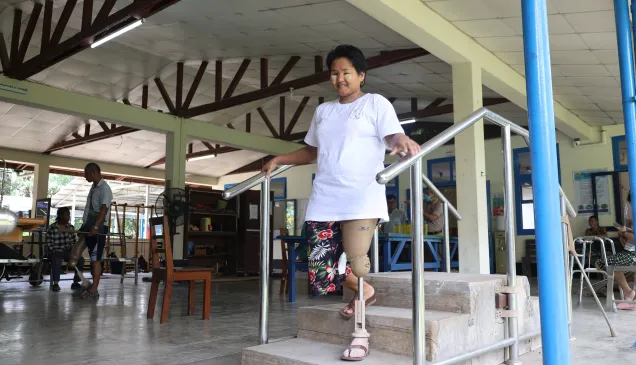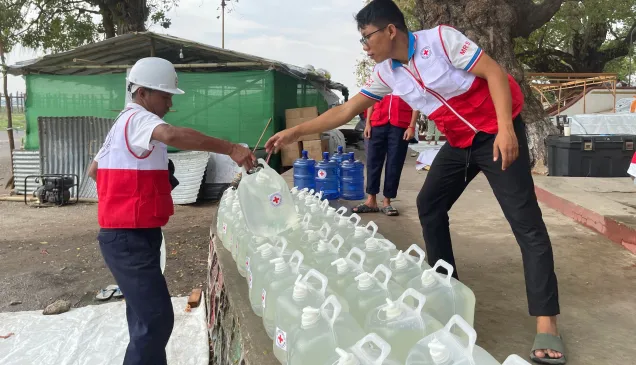Myanmar: Turning dreams into reality, disability into empowerment
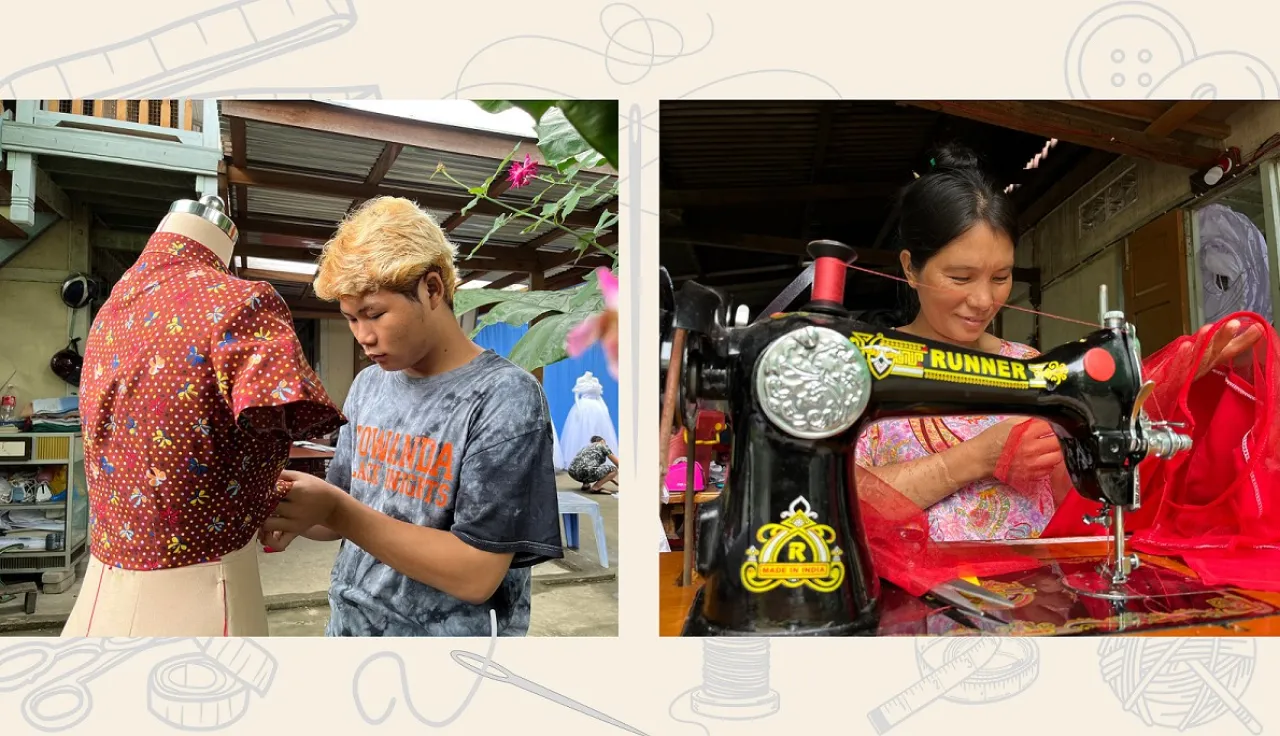
Bordering India and China, Myanmar's northern most state Kachin is a beautiful place, known for its cultural, religious, and ethnic diversity. But the landscape and variety have been overshadowed by violent clashes in the state, with thousands of families displaced.
What was once an ordinary thing, like putting food on the table, sending the children to school or having clean water to drink, is now a constant challenge. For those affected by violence, resilience has become a way of life.
San Htoi Mun is among the many who had to flee their homes because of conflict. A 17-year-old, San Htoi Mun currently lives in Moegaung's Sar Maw displacement camp in Kachin State. Dreaming of a better future, he is not willing to merely exist. "I always wanted to design things and make beautiful clothes for people. I have many dreams for me and my family. One of those dreams is to become a successful designer," he shares.
But before pursuing his dreams, San Htoi Mun had to find ways to survive so he took up a job in a restaurant. "One day, my aunt told me that the International Committee of the Red Cross (ICRC) was offering sewing classes in Myitkyina for the displaced community. I couldn't wait to start because I knew it would be my chance to make my dreams come true," he says.
Challenging prejudices
Since he was the only boy who enrolled in the tailoring class, San Htoi Mun worried about his friends and neighbours teasing him. He often asked himself, "Is it an issue if a 17-year-old male values beauty?" Despite all the comments, his family supported his choices. "Sometimes, when I face prejudice from friends, I think about how we can raise awareness about gender stereotypes in the community," he says.
But things are different for him in the tailoring class and he feels welcome. "Everyone treats each other with respect and love. Now, I can sew beautiful casual clothes for women," he says.
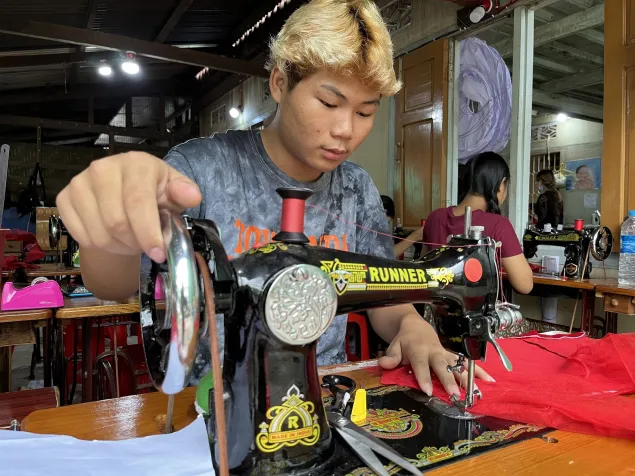

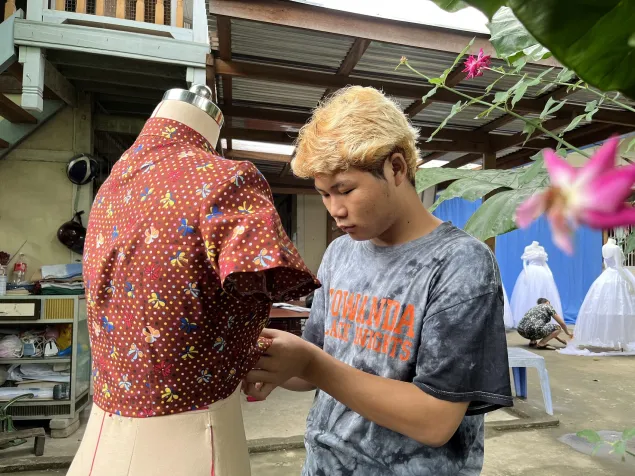
"I always wanted to design things and make beautiful clothes for people. I have many dreams for me and my family. One of those dreams is to become a successful designer," San Htoi Mun shares.
A "centimetre" dream
Daw Byar Aye Mee is also part of the tailoring course in Myitkyina. Mother of four, she lost one of her legs in an accident. While it was one of the darkest phases of her life, she has tried to do everything she could to support her family since then.
"After the accident, I felt very low because I couldn't accept how my life had turned. But my family was by my side through thick and thin. They encouraged me to get better and to get through the worst," she says.
Daw Byar Aye Mee received a prosthetic leg and underwent physiotherapy at the ICRC's physical rehabilitation centre in Myitkyina to help her walk again. With the tailoring skills, she aims to go further.
"I'm really excited that I enrolled in the tailoring course because I already had a basic knowledge of sewing and now I am able to build on it and turn it into a profession," she says. "I can make clothes that are in high demand in the market like three-layered and four-layered longyi."
Daw Byar Aye Mee intends to eventually open her own tailoring shop. "I will call it 'Centimeter'," she says with a smile.
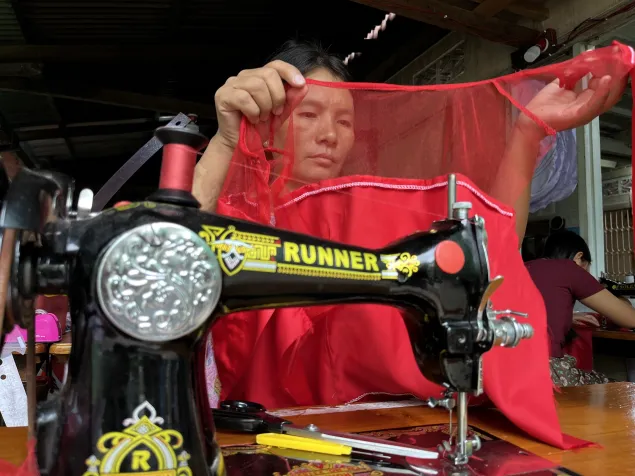
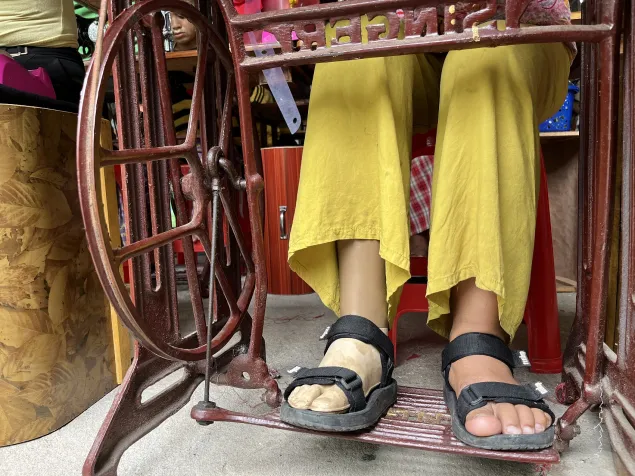
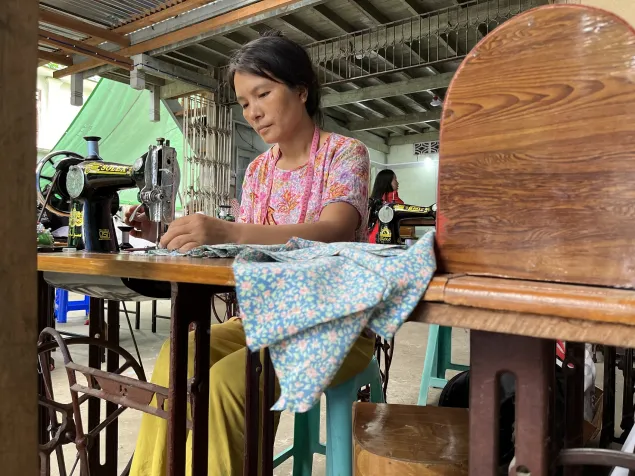
Daw Byar Aye Mee received a prosthetic leg and underwent physiotherapy at the ICRC's physical rehabilitation centre in Myitkyina to help her walk again. With the tailoring skills, she aims to go further.</h2>
Durable solutions bring a new dawn
San Htoi Mun and Daw Byar Aye Mee are two of the many people who have received help in their moments of dire need. They characterize the drive to follow one's dreams or chase new ones even in the midst of adversity.
"I have persevered in my desire to become a designer in spite of all the obstacles. I will continue to do so," says San Htoi Mun. Daw Byar Aye Mee chips in that as a person living with disabilities, she will continue to seek equal opportunities for people like her in the community.
Thalie Bareilles, head of the ICRC's office in Myitkyina, shares that humanitarian aid can mean responding to emergencies through food distribution or health-care services, especially when it is a matter of life and death.
However, assistance can also mean providing sustainable help and igniting a new life.
- Thalie Bareilles
The ICRC promotes socio-economic inclusion by providing vocational training for people with disabilities and people living in displacement camps in Kachin State, including returnees and those who have resettled. Through the sewing programme, we provide long-term livelihood support so that people can generate regular income and rebuild their lives.


